Perception Quotes
Most popular perception quotes
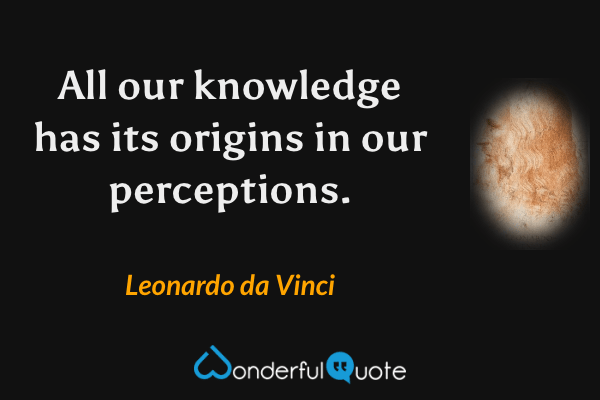
All our knowledge has its origins in our perceptions.
If the doors of perception were cleansed everything would appear to man as it is, infinite.
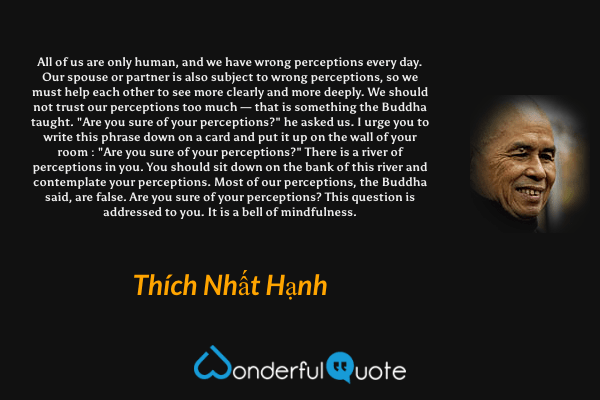
All of us are only human, and we have wrong perceptions every day. Our spouse or partner is also subject to wrong perceptions, so we must help each other to see more clearly and more deeply. We should not trust our perceptions too much — that is something the Buddha taught. "Are you sure of your perceptions?" he asked us. I urge you to write this phrase down on a card and put it up on the wall of your room : "Are you sure of your perceptions?" There is a river of perceptions in you. You should sit down on the bank of this river and contemplate your perceptions. Most of our perceptions, the Buddha said, are false. Are you sure of your perceptions? This question is addressed to you. It is a bell of mindfulness.
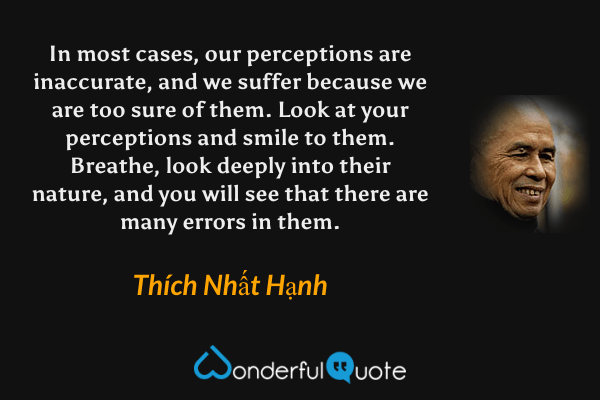
In most cases, our perceptions are inaccurate, and we suffer because we are too sure of them. Look at your perceptions and smile to them. Breathe, look deeply into their nature, and you will see that there are many errors in them.

Outside is pure energy and colorless substance, all of the rest happens through the mechanism of our senses. Our eyes see just a small fraction of the light in the world. It is a trick to make a colored world, which does not exist outside of human beings.

We are more closely connected to the invisible than to the visible.
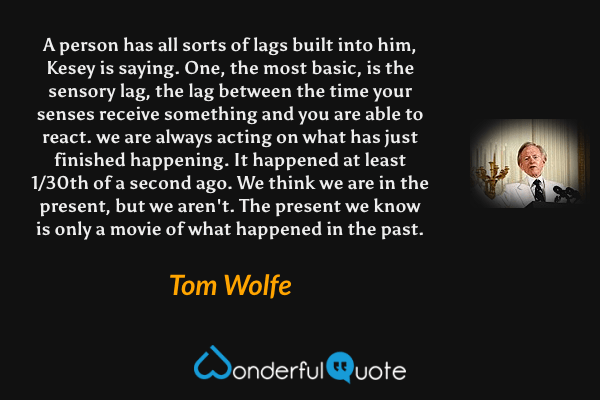
A person has all sorts of lags built into him, Kesey is saying. One, the most basic, is the sensory lag, the lag between the time your senses receive something and you are able to react. we are always acting on what has just finished happening. It happened at least 1/30th of a second ago. We think we are in the present, but we aren't. The present we know is only a movie of what happened in the past.
Every act of perception, is to some degree an act of creation, and every act of memory is to some degree an act of imagination.
Your brain, after all, is encased in darkness and silence in the vault of the skull. It's only contact with the outside world is via the electrical signals exiting and entering along the super-highways of nerve bundles. Because different types of sensory information (hearing, seeing, touch, and so on) are processed at different speeds by different neural architectures, your brain faces an enormous challenge: what is the best story that can be constructed about the outside world?

Our brains permit us to use such a wee fraction of their resources that, in a sense, everything we experience is a reduction. We employ drugs, yoga techniques and poetics - and a thousand more clumsy methods - in an effort just to bring things back up to normal.

The "I" in me, my friend, dwells in the house of silence, and therein it shall remain for ever more, unperceived, unapproachable. I would not have thee believe in what I say nor trust in what I do — for my words are naught but thy own thoughts in sound and my deeds thy own hopes in action.
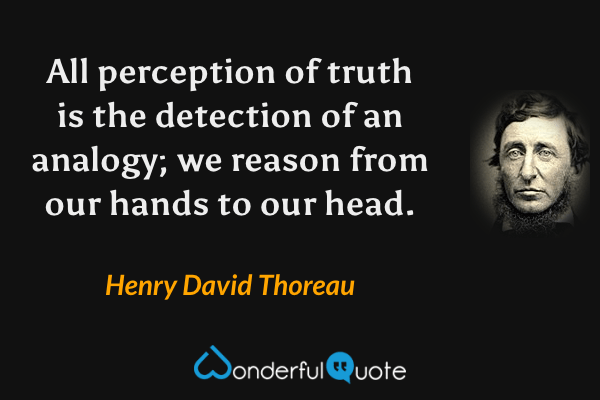
All perception of truth is the detection of an analogy; we reason from our hands to our head.
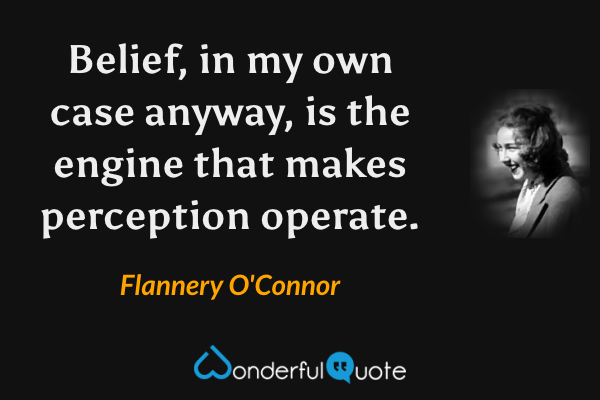
Belief, in my own case anyway, is the engine that makes perception operate.
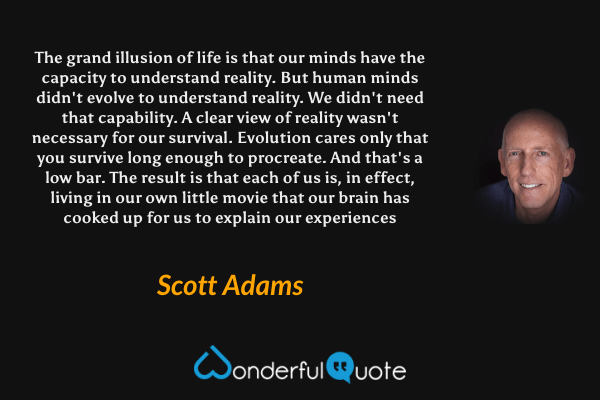
The grand illusion of life is that our minds have the capacity to understand reality. But human minds didn't evolve to understand reality. We didn't need that capability. A clear view of reality wasn't necessary for our survival. Evolution cares only that you survive long enough to procreate. And that's a low bar. The result is that each of us is, in effect, living in our own little movie that our brain has cooked up for us to explain our experiences
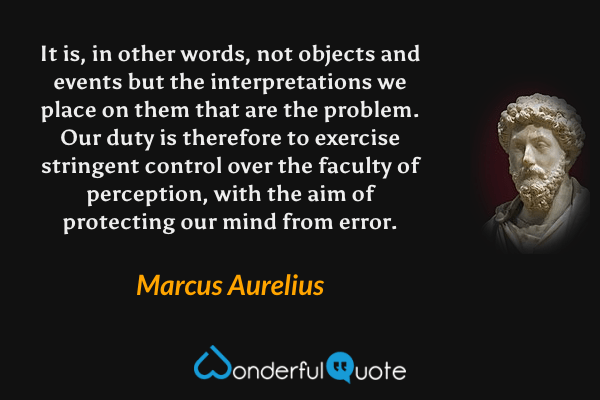
It is, in other words, not objects and events but the interpretations we place on them that are the problem. Our duty is therefore to exercise stringent control over the faculty of perception, with the aim of protecting our mind from error.

The eye of a human being is a microscope, which makes the world seem bigger than it really is.


